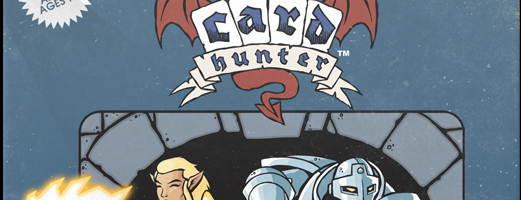It’s time for the top three this year. #3 has already been mentioned already and its interesting design and example of how to do free to play right helped secured its place on the list.
#3: Card Hunter —
Card Hunter was my pick for best value this year and it really is one of the best examples of how to do F2P right. Let’s start with the design: a combination of tactical strategy and CCG gameplay where equipment equaled cards for decks to be used in combat.
Each of the classes had their own unique equipment and abilities that they could draw from to make use of. There was a variety of card types in the game which could strengthen or weaken your characters, forcing you to weigh the benefits of higher level gear.
Card Hunter’s loot system featured set loot but randomized rewards. Where there was a higher chance of finding loot comparative to the level of the challenge, it was possible to find just about anything at anytime from beating a level. Even better, rewards for purchasable content could be found this way.
Card Hunter’s microtransaction system offered the majority of the content for free, including both a single player campaign and multiplayer battles. In terms of purchasable content, there were quests that could be bought which had guaranteed rewards for beating them. But as we just talked about, you had a chance of finding these rewards over the course of playing the regular maps.
Real money could be spent on buying chests with guaranteed rarity levels, allowing someone to speed up the loot process. For personalization, you can buy costumes for each of the races and class combos.
Tying everything together is the game’s Pen and Paper aesthetic which is a part of every aspect of the game: From levels taking the form of modules, characters as little figures and more.
My main problem with Card Hunter was that the difficulty curve of the game was a bit extreme due to the random loot drops. The game becomes a lot harder once you hit the early teens and if you weren’t lucky with drops, the game can become a bit of a grind.
I was stuck in a position where I wasn’t finding comparative equipment to the challenges I was facing and my party just couldn’t compete deck wise compared to the AI.
Regardless, Card Hunter has been in development for awhile and it shows with the level of design and value put into it. It’s a concept that offers a lot of flexibility in terms of continued support and hopefully Blue Manchu will be able to keep growing it.




Pingback: The 2013 Game-Wisdom Awards | Game Wisdom()
Pingback: The 2013 Game-Wisdom Awards: #4 | Game Wisdom()